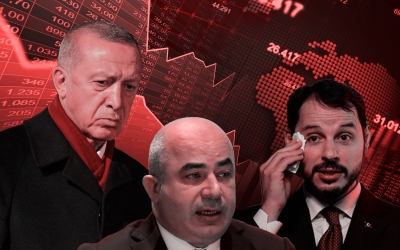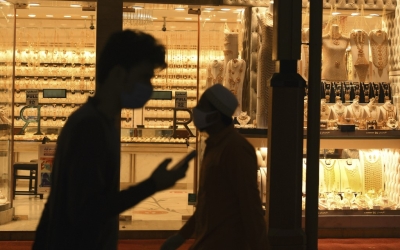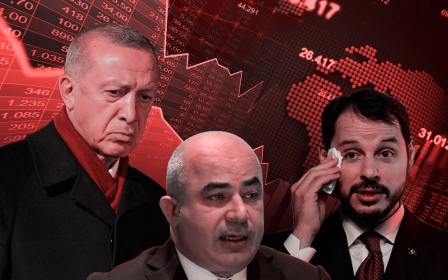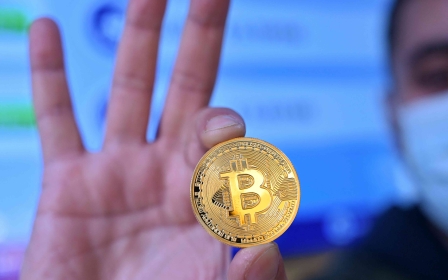Turkey: Four ways citizens are trying to survive the financial crisis
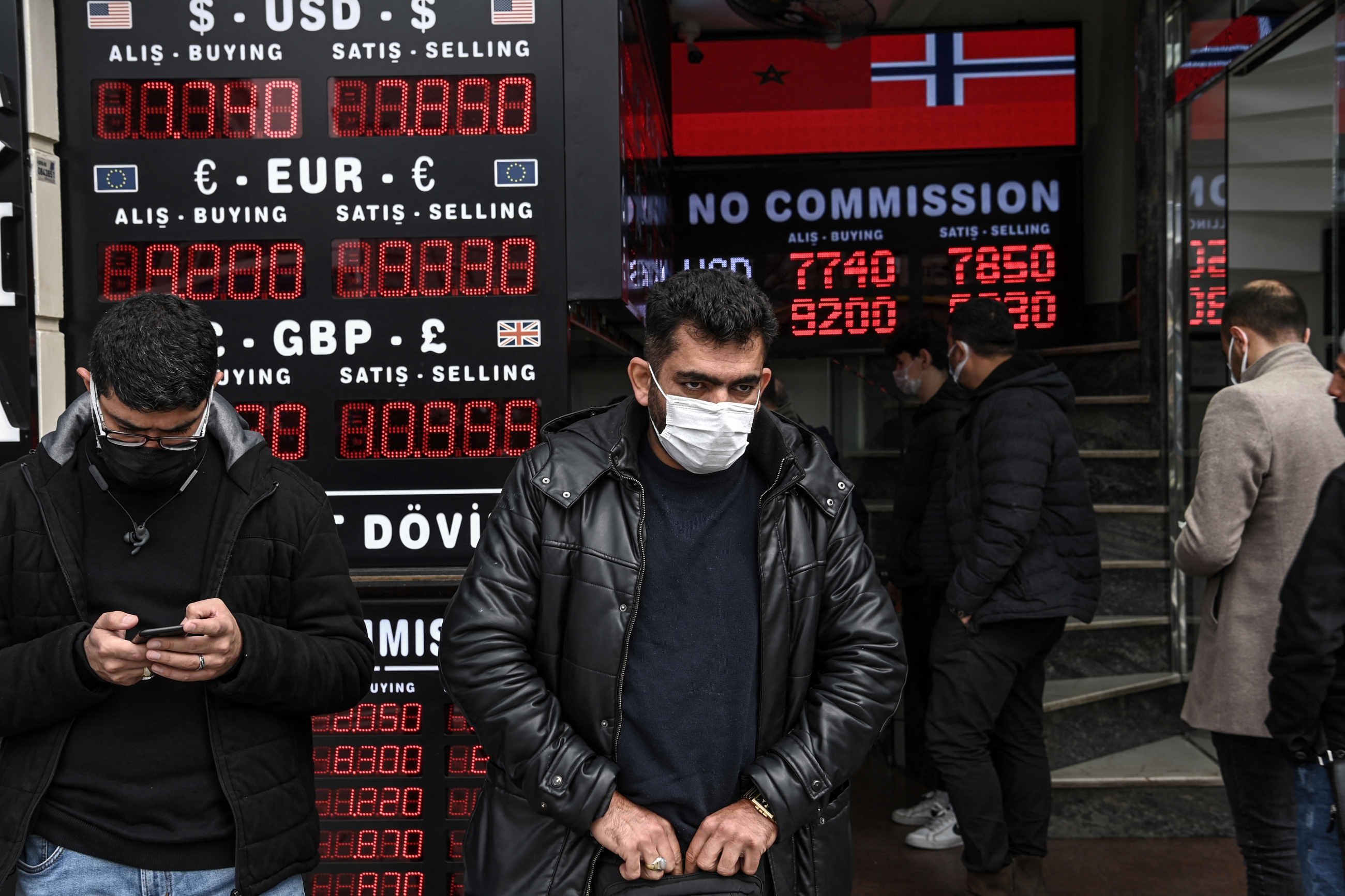
Over the decades, Turkish people have learned to be resilient in the face of recurring economic shocks.
Elderly people would regularly keep savings in the form of gold or other valuables under mattresses or pillows, deemed safer than the banking system. Learning to protect oneself from regular financial meltdowns was part of the family heritage received from one's parents.
Now Turkey is facing another currency crisis, which has been dragging on since 2019, with the Turkish lire losing nearly 20 percent of its value in the last 12 months. Central Bank reserves now stand at a $47bn deficit, raising concerns over the balance of payments. Annual inflation hit nearly 16 percent in March and the country's real unemployment rate is almost at 30 percent.
Ibrahim Kahveci, a well-known economist and writer for the Karar daily, said Turkish people sadly were no longer investing in small- or medium-sized businesses, despite them being the backbone of the economy.
“We are losing the most important element, which is having a production-oriented economy,” he told Middle East Eye. “People are really looking for quick gains and not thinking about any long-term investments anymore. They don’t even invest money into real estate.”
A quick investigation reveals that Turkish citizens wary of the flightiness of the lira are now turning to four main methods to try and protect their savings.
Cryptocurrencies
From construction workers to hairdressers to serious businessmen, many Turks have turned to cryptocurrencies in the past year.
Daily market transactions of cryptocurrencies based in Turkey are believed to be worth $1-2bn. Several polls indicate that between 16 and 20 percent of Turkish citizens used or owned cryptocurrencies in 2020. Some estimates peg the number of cryptocurrency investors in Turkey at roughly 5 million.
The use of bitcoin has increased a whopping 600 percent in the last 12 months, far ahead of other cryptocurrencies.
“Turkish people are overwhelmingly young and tech-savvy. They have always been open to innovation,” Ahmet Turan Han, a cryptocurrency investor, told MEE. “It makes sense for them because they are easy to buy. Unlike Turkish traditional markets, cryptocurrency markets are open 24/7. And you don’t need to pay taxes as you do in Turkey when you buy forex (foreign currency).”
Turkish President Recep Tayyip Erdogan’s unexpected firing of Central Bank Governor Naci Agbal last month also triggered a new wave of investment into cryptocurrencies. Agbal's dismissal further appreciated US dollars against the lira, resulting in nearly $9bn profit in forex sales - profits which investors then poured into digital currencies.
Data released by Reuters indicate that $26bn worth of cryptocurrency transactions took place in Turkey between February and March, nearly four times as much as in the same time period a year earlier.
Han says it is hard to lose money in cryptocurrencies because some are tied to the US dollar - and trading is not limited to bank opening hours, allowing investors to react more quickly to certain events affecting the markets.
“Unlike forex in Turkey, you could buy and sell while Erdogan fired the Central Bank governor overnight,” he explains.
However, there are also serious risks associated with cryptocurrencies. In March, a man killed his wife and two children, then killed himself, in the city of Antalya after losing thousands of dollars in bitcoin investments. Fraudsters have also taken advantage of regular Turks who aren’t familiar with financial markets.
Meanwhile, the Central Bank last week banned the use of cryptocurrencies in purchasing goods and services, arguing that such transactions are “irrecoverable”. It also warned that digital currencies were prone to be used by some groups to fund illegal activities.
The move has worried investors that Turkey may soon tax cryptocurrency exchanges locally and toughen restrictions around cryptocurrency trading on foreign markets.
Stock exchange
Turkish people have also been investing heavily in the Istanbul stock exchange in the past two years. Regardless of profession or income, nearly everyone in the country could discuss insider information on the next hot stock.
“Turkish investors would traditionally prefer to hold their savings in Turkish lira deposits to earn interest, and real estate properties and gold or forex,” Figen Ozavci, an assistant general manager for investment company Meksa Yatirim, told MEE. “The loss of appeal in interest rates and comparative stability in Turkish lira-USD exchange rate made stocks and cryptocurrencies more appealing.”
The Turkish Central Bank has for the most part kept the real interest rate below zero during this period, encouraging many investors to deposit their money into other assets. Ozavci said the ban on short-selling in Borsa Istanbul also caused stock volatility, bringing high profits for many short-term investors.
'The interest on deposits was lower than the profits from stocks. Social media quickly ushered the news about high gains'
- Figen Ozavci, Meksa Yatirim investment company
“The interest on deposits was lower than the profits from stocks. Social media quickly ushered the news about high gains,” Ozavci explains.
The latest data indicates the number of investors in the Istanbul Stock Exchange increased by 87 percent in the last 12 months, reaching 2.57 million in March.
"The total number of investors for the past 20 years entered the stock market in a single year. This is a first in Turkey,” columnist Abdurrahman Yildirim wrote for Haber earlier this month.
Ozavci says the main driver for investors was initial public offerings, which accelerated the profit from some stocks.
Kahveci says that the Turkish government’s policy of high credit growth pumped money into the stock market and bitcoin.
“The government poured more than 700bn Turkish Lira ($86bn) into the markets as loans last year. Most of the money didn’t go into deposits, rather they were invested in the stock market and cryptocurrencies,” he said.
Gold
Turks have traditionally invested in gold for long-term savings. Last year, as the Covid-19 crisis hit the country, millions of people purchased gold, its price rising by 28 percent.
Turkey’s gold imports soared by 100 percent last year, reaching $26.6bn in 2020. But Kahveci warns this boom may be short-lived.
“This year, the interest in gold decreased for two reasons: it is losing value and the markets aren’t hungry for further purchases since citizens have already invested in gold or other products, whatever they have really,” he said.
“Another reason for the loss appetite is credit payments. Most of the loans that were taken last year during the government's credit drive have instalments due in the next few months.”
Foreign currency - but mostly dollars
Dollarisation has been a pressing problem for Turkey’s policymakers. Due to soaring inflation last year, mostly in food prices, and negative interest rates, Turkish citizens have flocked to the US dollar or the euro.
Turkish citizens and companies had over $235bn in dollars in the banks by the end of 2020. Since Agbal's dismissal from the Central Bank, Turks have sold over $11bn worth of forex, taking advantage of the soaring rate of the dollar compared to the lira.
However, after two weeks of selling, Turkish residents again returned their interest into forex, purchasing nearly $2bn worth of US dollars. The total amount of US dollars and forex assets in the country stood at $223bn as of 9 April.
Middle East Eye propose une couverture et une analyse indépendantes et incomparables du Moyen-Orient, de l’Afrique du Nord et d’autres régions du monde. Pour en savoir plus sur la reprise de ce contenu et les frais qui s’appliquent, veuillez remplir ce formulaire [en anglais]. Pour en savoir plus sur MEE, cliquez ici [en anglais].


